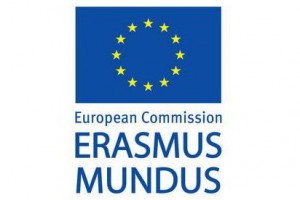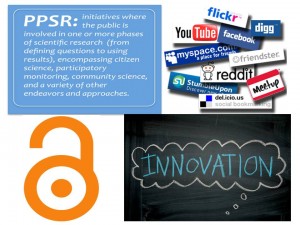This week the Bournemouth University Clinical Research Unit (BUCRU) will be posting daily blogs. In these blogs we will tell you a little about the Unit, what we do, who we are, and how we might be able to help in your research endeavours.
What is BUCRU?
BUCRU is a new model for supporting and conducting health related research in Dorset. It supports researchers in improving the quality, quantity and efficiency of research across the University and local National Health Service (NHS) Trusts. It does this by:
- helping researchers with developing high quality applications for external research funding (including small grants)
- ongoing involvement in funded research projects
- a “pay-as-you-go” consultation service for other work
How can BUCRU help?
BUCRU can provide help in the following areas:
- Study design
- Quantitative and qualitative research methods
- Statistics, data management and data analysis
- Patient and public involvement in research
- Trial management
- Ethics, governance and other regulatory issues
- Linking University and NHS researchers
BUCRU focuses on health research that has relevance to the NHS. The Unit is available to Bournemouth University staff and people working locally in the NHS. There are no general restrictions on topic area or professional background of the researcher. However we do have special interests in areas such as chronic disease and complex interventions (interventions in nursing, physiotherapy, occupational therapy, psychology and so on).
How is it funded?
BUCRU is partly funded by the National Institute for Health Research (NIHR) and incorporates the Dorset office of the NIHR Research Design Service (http://www.rds-sw.nihr.ac.uk). Further funding comes from a variety of research grants and contracts.
Contact us: In the first instance please contact
Louise Ward (administrator):
Bournemouth University Clinical Research Unit
R505 Royal London House
Christchurch Road
Bournemouth BH1 3LT
Tel: 01202 961939
 Watch this excellent short video from BU’s
Watch this excellent short video from BU’s 







 The blogosphere sounds like a strange galaxy in another dimension, but is the term used to refer to all blogs (such as this one!) and their interconnections. Readers of blogs share their thoughts and views in a collected community. Academic blogs tend to focus on professional topics, showing explicit connections between blog content, research issues and academic life, and more academics than ever are now engaging with the blogosphere to share their work, establish networks and connections, and to develop their careers. But are the benefits really that great?
The blogosphere sounds like a strange galaxy in another dimension, but is the term used to refer to all blogs (such as this one!) and their interconnections. Readers of blogs share their thoughts and views in a collected community. Academic blogs tend to focus on professional topics, showing explicit connections between blog content, research issues and academic life, and more academics than ever are now engaging with the blogosphere to share their work, establish networks and connections, and to develop their careers. But are the benefits really that great? Watch this excellent short video from BU’s
Watch this excellent short video from BU’s  There have been a number of strong Research Council bids submitted since my last email, most of which have been run through our internal peer review scheme (the RPRS) which is great news – good luck therefore to Venky Dubey (DEC) for submitting large bids to both the MRC and the NIHR, Barry Richards (MS) for a bid on interactive extremism submitted to the AHRC, Bronwen Thomas (MS) for submitting a bid on researching readers online to the AHRC, Neal White (MS) for being part of a large multi-institution bid submitted to the ESRC’s joint council Connected Communities scheme, and to Genoveva Esteban (ApSci) for a bid on food webs to NERC. One cross-School bid has been submitted this period – good luck to Peter Thomas and Zoe Sheppard (HSC) and Samuel Nyman (DEC) who submitted a joint bid on reducing falls for inpatients with dementia to the NIHR, an excellent example of cross-School working.
There have been a number of strong Research Council bids submitted since my last email, most of which have been run through our internal peer review scheme (the RPRS) which is great news – good luck therefore to Venky Dubey (DEC) for submitting large bids to both the MRC and the NIHR, Barry Richards (MS) for a bid on interactive extremism submitted to the AHRC, Bronwen Thomas (MS) for submitting a bid on researching readers online to the AHRC, Neal White (MS) for being part of a large multi-institution bid submitted to the ESRC’s joint council Connected Communities scheme, and to Genoveva Esteban (ApSci) for a bid on food webs to NERC. One cross-School bid has been submitted this period – good luck to Peter Thomas and Zoe Sheppard (HSC) and Samuel Nyman (DEC) who submitted a joint bid on reducing falls for inpatients with dementia to the NIHR, an excellent example of cross-School working. Congratulations to Rob Britton (ApSci) for being awarded a Marie Curie Intra-European Fellowship grant from the EC – this is excellent news! Congratulations are also due to Genoveva Esteban (ApSci) for winning a contract with the Environment Agency to conduct an aquatic biodiversity survey, Richard Stillman (Apsci) for securing a contract with Halcrow Ltd, Mark Maltby (ApSci) for securing a small bone assessment contract with Bedfordshire County Council, Keith Hayman (ST) for securing a CPD contract with Hall and Woodhouse, Roger Herbert (ApSci) for securing a contract with the Shellfish Association of Great Britain to research pacific oyster issues, and to Mark Dover (ApSci) for winning a contract with Dataloft. Congratulations also to Mike Molesworth (Liam Toms and the CEB team) (MS) for securing a contract with Work Research Ltd, to Steve Calver (and the MRG team) (ST) for winning a number of contracts with local authorities and a repeat contract with the Holburne Museum in Bath, to Bronwen Russell (and the Bournemouth archaeology team) (ApSci) for a securing a number of contracts with Distributed Generation Limited, and to Richard Gordon (ST) for securing a training contract with NEMA..
Congratulations to Rob Britton (ApSci) for being awarded a Marie Curie Intra-European Fellowship grant from the EC – this is excellent news! Congratulations are also due to Genoveva Esteban (ApSci) for winning a contract with the Environment Agency to conduct an aquatic biodiversity survey, Richard Stillman (Apsci) for securing a contract with Halcrow Ltd, Mark Maltby (ApSci) for securing a small bone assessment contract with Bedfordshire County Council, Keith Hayman (ST) for securing a CPD contract with Hall and Woodhouse, Roger Herbert (ApSci) for securing a contract with the Shellfish Association of Great Britain to research pacific oyster issues, and to Mark Dover (ApSci) for winning a contract with Dataloft. Congratulations also to Mike Molesworth (Liam Toms and the CEB team) (MS) for securing a contract with Work Research Ltd, to Steve Calver (and the MRG team) (ST) for winning a number of contracts with local authorities and a repeat contract with the Holburne Museum in Bath, to Bronwen Russell (and the Bournemouth archaeology team) (ApSci) for a securing a number of contracts with Distributed Generation Limited, and to Richard Gordon (ST) for securing a training contract with NEMA..














 Expand Your Impact: Collaboration and Networking Workshops for Researchers
Expand Your Impact: Collaboration and Networking Workshops for Researchers Visiting Prof. Sujan Marahatta presenting at BU
Visiting Prof. Sujan Marahatta presenting at BU 3C Event: Research Culture, Community & Can you Guess Who? Thursday 26 March 1-2pm
3C Event: Research Culture, Community & Can you Guess Who? Thursday 26 March 1-2pm UKCGE Recognised Research Supervision Programme: Deadline Approaching
UKCGE Recognised Research Supervision Programme: Deadline Approaching ECR Funding Open Call: Research Culture & Community Grant – Apply now
ECR Funding Open Call: Research Culture & Community Grant – Apply now ECR Funding Open Call: Research Culture & Community Grant – Application Deadline Friday 12 December
ECR Funding Open Call: Research Culture & Community Grant – Application Deadline Friday 12 December MSCA Postdoctoral Fellowships 2025 Call
MSCA Postdoctoral Fellowships 2025 Call ERC Advanced Grant 2025 Webinar
ERC Advanced Grant 2025 Webinar Update on UKRO services
Update on UKRO services European research project exploring use of ‘virtual twins’ to better manage metabolic associated fatty liver disease
European research project exploring use of ‘virtual twins’ to better manage metabolic associated fatty liver disease